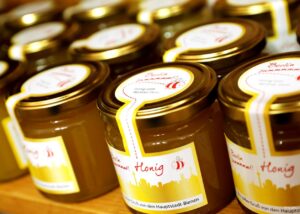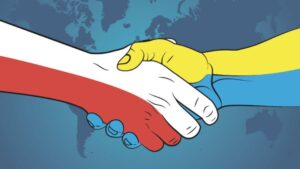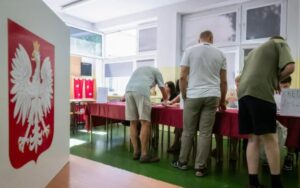
An overview of the property tax system in Poland for foreign citizens and expats
Interest in Polish real estate among foreigners, including Ukrainian expats, continues to grow. At the same time, it is important to consider the tax burden associated with both the purchase and ownership and sale of a home. In this article, we will look at the key taxes related to real estate in Poland, as well as the current rates and features for individuals.
– Tax on the purchase of real estate: tax on civil law transactions (PCC)
When purchasing secondary real estate (from a private individual), the buyer is required to pay PCC at a rate of 2% of the property value.
Example: an apartment for €100,000 — the tax will be €2,000.
If the property is purchased on the primary market (from a developer), PCC is not payable, but VAT is charged (usually 8% or 23% depending on the type of housing and area).
Up to 150 m² for an apartment or 300 m² for a house — 8% VAT
Above these limits — 23% VAT on the excess
The purchase is accompanied by notary fees: drawing up the agreement, entry in the land register, registration fees. The average amount of additional costs is about 2–4% of the purchase price.
– Property tax (Podatek od nieruchomości)
This is an annual local tax paid by every property owner. It is determined at the commune (municipality) level and depends on the size of the property.
Maximum rates in 2025 (set annually by the Polish Ministry of Finance):
Apartments and houses: up to PLN 1.15 per m² (≈ €0.27)
Land plots for residential purposes: up to PLN 0.70 per m² (≈ €0.16)
Example: a 60 m² apartment in Warsaw → tax ~ €16 per year.
Important: the rate is lower in small towns and closer to the maximum in the capital.
– Tax on rental income
If the property is rented out, the income is taxable. Individuals can choose one of the following schemes:
Market rate (general PIT scale): 12% up to PLN 120,000 of income per year and 32% on the excess (2025)
Flat rate (ryczałt): 8.5% on income up to PLN 100,000 and 12% on the excess
The ryczałt regime is popular among small landlords, especially for short-term rentals.
– Capital gains tax (on sale)
When selling real estate earlier than 5 years after its acquisition, there is an obligation to pay 19% capital gains tax on the profit.
Exceptions:
The tax is not payable if the seller has owned the property for 5 years or more.
Exemption is also available if the entire amount is used to purchase a new home or for construction within 3 years.
– Other costs and fees
Property maintenance: utility bills, repair and management fees (especially in residential complexes)
Garbage collection fee: set by the municipality, depends on the number of residents
Management company fees: from PLN 2 to PLN 4/m² per month (€0.5–1/m²)
The Polish real estate taxation system is moderate and relatively transparent. Particular attention should be paid to the PCC tax when purchasing and the obligation to pay capital gains tax when selling. For foreign investors and relocators, it is important to take into account the total tax burden in advance when planning a purchase or lease.
relocation.com.ua recommends consulting a Polish tax advisor or lawyer before entering into a transaction to avoid unexpected costs and optimize the tax consequences.

Ukraine exported 24.406 thousand tons of honey in January-June 2025, which is 1.9 times less than in the same period of 2024, when 48.113 thousand tons of this product was supplied to foreign markets. According to statistics released by the State Customs Service (SCS), revenue from honey sales for the period amounted to $53.261 million, which is 41.7% less than for the same period last year, when revenue amounted to $91.417 million.
The top three importers of Ukrainian honey in January-June 2025 were Germany, which accounted for 22.86% of purchases worth $12.177 million, Spain – 10.83% and $5.769 million respectively, Poland – 9.77% and $5.2 million respectively.
A year earlier, during the same period, the most active importers of sugar from Ukraine were Germany (25.76% at $23.546 million) and Poland (10.16% at $9.288 million), as well as the United States (15.27% at $13.955 million).

Almost half of all Polish companies founded by Ukrainians were established during the Great War
About 30 thousand companies founded by Ukrainians were registered in Poland as of the beginning of July 2025, according to the Polish register of legal entities Krajowy Rejestr Sądowy (KRS). Almost half of them were opened after the start of the full-scale program. Most Ukrainian businesses are concentrated in three voivodeships: Mazowieckie (Warsaw in particular), Małopolskie (Krakow and the region), and Dolnośląskie (Wrocław and the surrounding area).

29,044 companies with Ukrainian citizens as ultimate beneficiaries are currently registered in Poland. Almost half of them have been opened by Ukrainians since the beginning of the full-scale war – 13,014 businesses. A total of 208,251 companies have been opened in Poland over the past 3.5 years. Ukrainians accounted for 6% of new businesses during this time.
Most companies were registered by Ukrainians in 2022 – 4,780 businesses. This is a third more than in 2021.
Most often, Ukrainians register an analog of the Ukrainian LLC – spółka z ograniczoną odpowiedzialnością – 27,656 or 95% of all Ukrainian businesses in Poland.
The number of charitable organizations founded by Ukrainians in Poland has also increased significantly: since 2022, Ukrainians have established 486 foundations. This is 4 times more than before the start of the full-scale program.
Most Ukrainian companies are concentrated in three voivodeships: Mazowieckie (including Warsaw) – 11,568 companies, Małopolskie (Kraków and the region) – 3,200 businesses, and Dolnośląskie (Wrocław and the surrounding area) – 3,019.
Most of the Ukrainian companies registered by Ukrainians after the start of full-scale business in Poland are small businesses. Almost 10 thousand companies have an authorized capital of less than 10 thousand zlotys. Only 133 businesses have a capital of more than 500 thousand zlotys.
In total, the capital of all Ukrainian companies in the Polish register is over 7.34 billion zlotys. Of this amount, 533 million zlotys are accounted for by businesses opened after the start of full-scale trade. It is worth noting that although 45% of companies were established after the outbreak of the war, their total capital is 12 times less than that of the “pre-war” Ukrainian business in Poland.
As a reminder, in 2024, Ukrainians paid almost 1.65 billion zlotys ($414 million) to the Polish state budget in personal income and corporate income taxes, according to the analytical center of the international employment company Gremi Personal, citing the Polish Ministry of Finance.
https://opendatabot.ua/analytics/ukrainian-business-in-Poland

From November 1, 2025, Poland will stop accepting Ukrainian refugees in collective accommodation centers, with the exception of members of so-called protected groups: pensioners, pregnant women, and people with disabilities. This was reported by Polish Radio, citing a decision taken by the Polish Council of Ministers at a meeting on July 16.
According to Joanna Bachanek, press secretary of the Mazovia Province, every Ukrainian citizen has the right to free accommodation in shelters for 120 days after arriving in Poland.
After this period, a period of financial participation begins, i.e., additional payments for accommodation and food.
“More than half of the residents of collective accommodation centers already pay for part of their stay. After November 1, such centers will operate exclusively for the elderly, pregnant women, and people with disabilities,” Bahanek said.
According to the authorities, there are currently about 3,000 Ukrainians living in the Mazovia Province, while there are only about 1,000 places available.
For the remaining Ukrainian citizens, the Polish authorities are planning to launch the “Wspólnie do niezależności” (“Together for Independence”) program, which provides:
The program is expected to enable gradual adaptation and transition from a system of state support to a model of independent living.

Voting in the presidential election began in Poland on Sunday at 7:00 a.m. local time (8:00 a.m. Kyiv time – IF-U), according to the Polish Press Agency (PAP).
Thirteen candidates are participating in the election. Voting will continue until 9:00 p.m. An election silence is in effect in the country until the polls close.
“Almost 29 million citizens are eligible to vote. Polling stations are open throughout the country – more than 32,000, with another 511 stations operating abroad,” the report said.
Earlier, the Experts Club analytical center released a video analysis dedicated to the most important elections in the world in 2025. For more details, see here — https://youtu.be/u1NMbFCCRx0?si=QeURHol_f1zN_jLE

The GastroFamily franchise chain has opened its fourth Bilyi Nalyv ciderery in Poland, the brand reported on its Instagram.
“The Ukrainian ciderery Bilyi Nalyv has started working in the Polish city of Lodz. The bar is located on the main street of the city – Piotrkowska, also known as Pietrina,” the network informed.
According to the report, the establishment operates on a franchise basis. Eldar’s franchisee is from Vinnytsia. Back in 2023, he and his partners opened the first Bilyi Nalyv in Europe, and in 2025, he and his wife decided to open their own bar in Lodz.
Like other establishments of this format, the ciderhouse in Łódź has a lot of neon and dark wood in its interior. A summer terrace will soon appear. DJ parties will be held here every Friday and Saturday.
“Bily Nalyv in Lodz is the fourth establishment of the chain in Poland: bars also operate in Warsaw, Wroclaw, and Gdansk. The chain promises to open another location in Poland in the fall.
GastroFamily unites almost 65 establishments. GastroFamily launched its international franchise in 2022, with 15 brands available: “Bilyi Nalyv, BPSh, Chicken Kyiv, Mushlya, Varenyky Now, Oxota na Ovets, etc.
According to a study by the Ukrainian restaurant automation company Poster POS, the GastroFamily franchise chain opened 7 restaurants in Ukraine and 2 in Poland in 2024.
“The year started with the Borsuk restaurant in Lukianivka, Kyiv, which was hit by a blast wave five days before the opening and damaged its equipment. They quickly replaced the windows, repaired the damage, and continued to operate. Then they opened six Bilyi Nalyv bars in Ukraine (Bila Tserkva, Lutsk, Rivne, Irpin, two in Kyiv) and two in Poland (Warsaw, Gdansk),” the study says.
According to the Bilyi Nalyv cideries chain on its Instagram, it celebrated its seventh anniversary on April 1, 2025. During this time, the sommeliers of the establishments have bottled “tons of cider, hugged thousands of guests and created hundreds of reasons for smiles.”